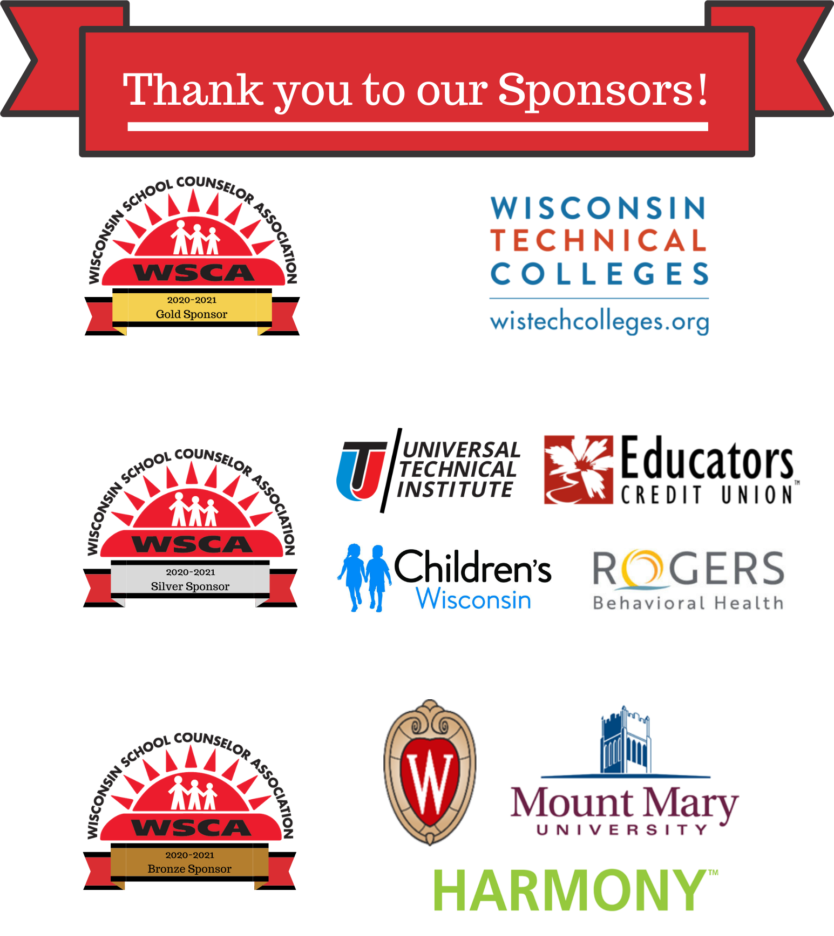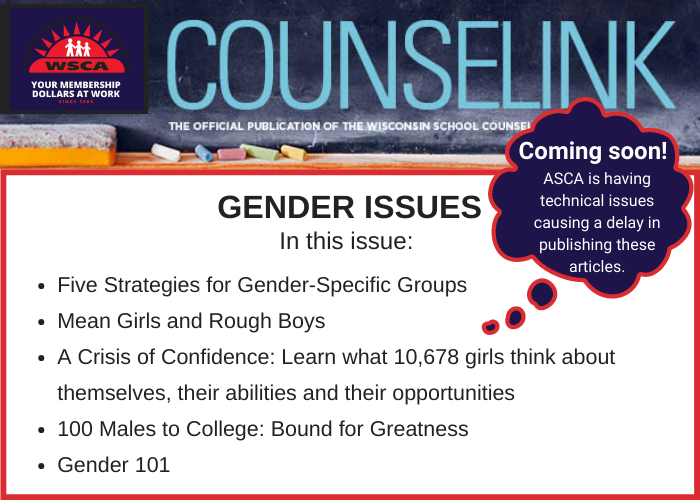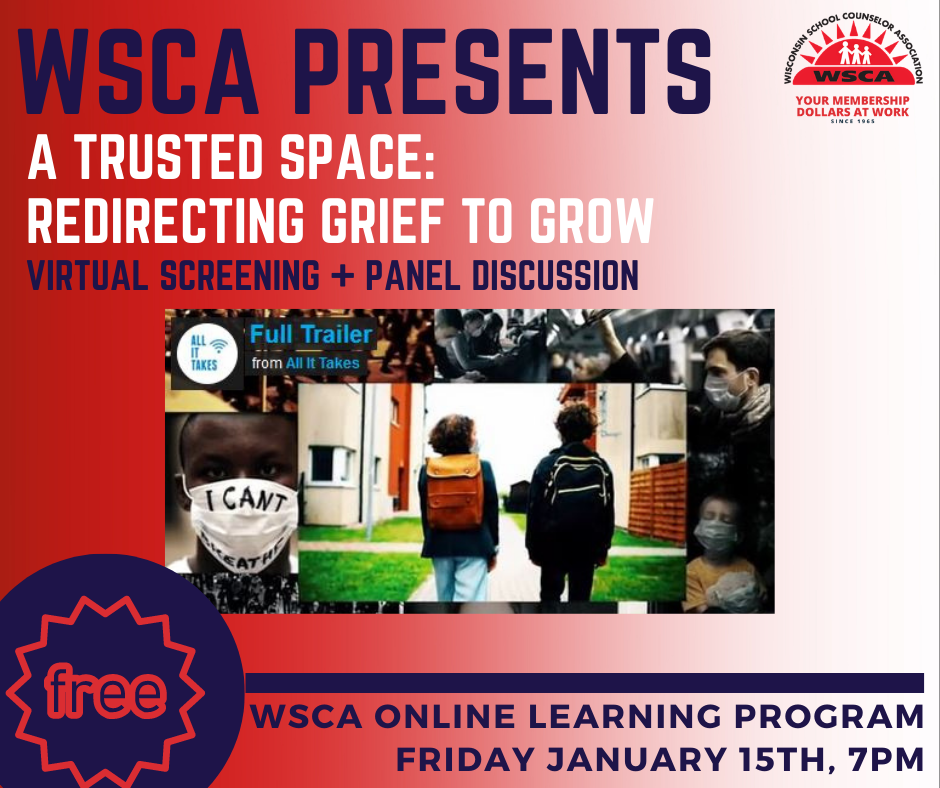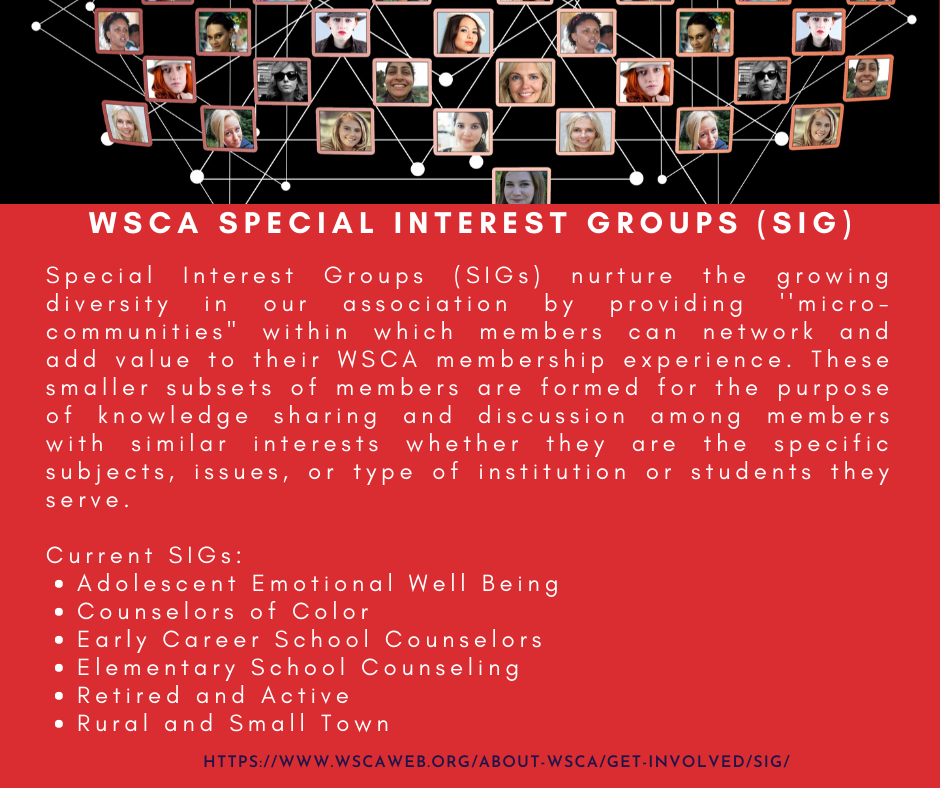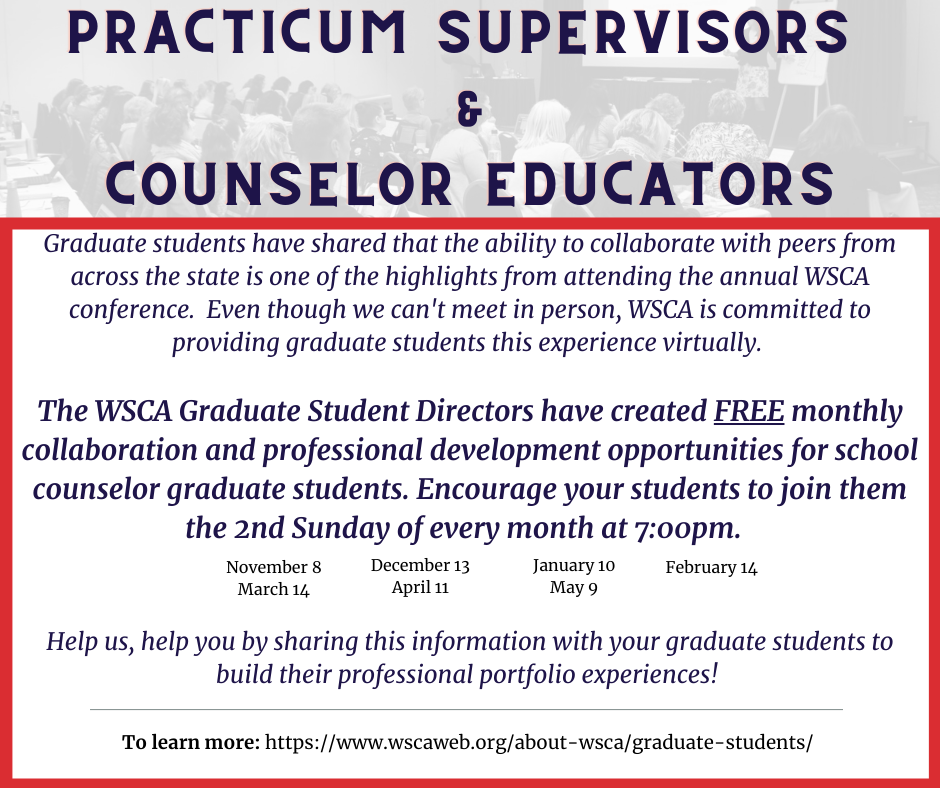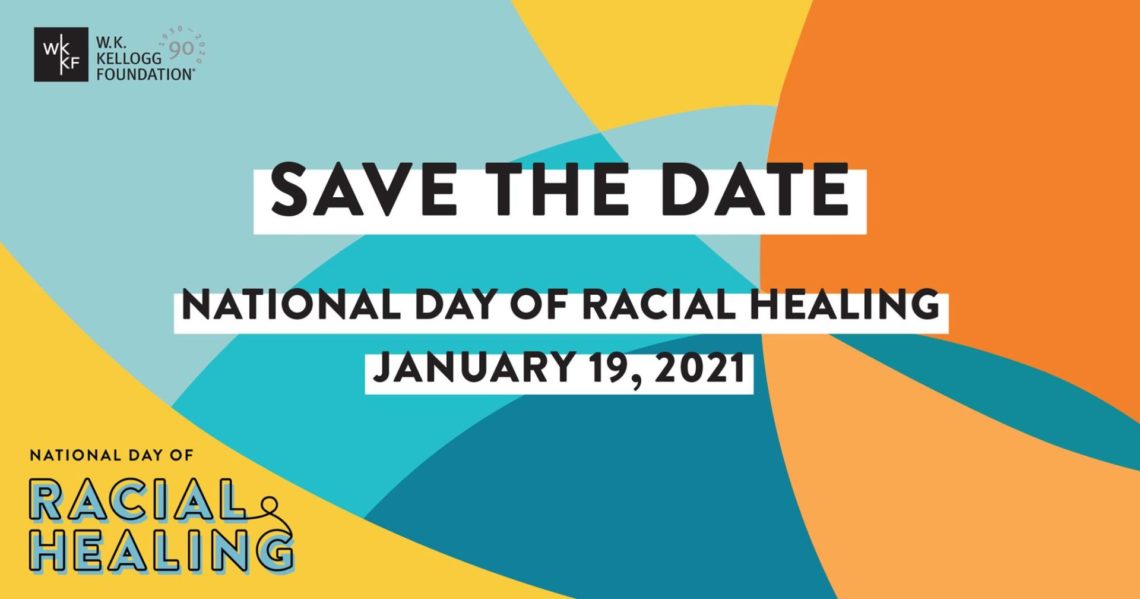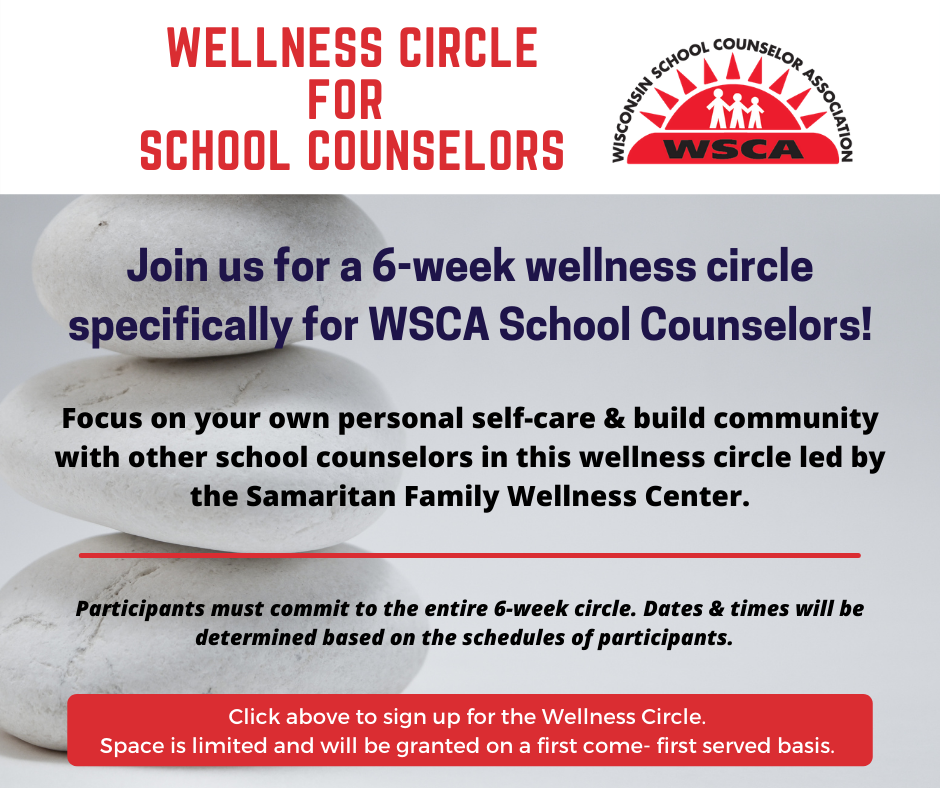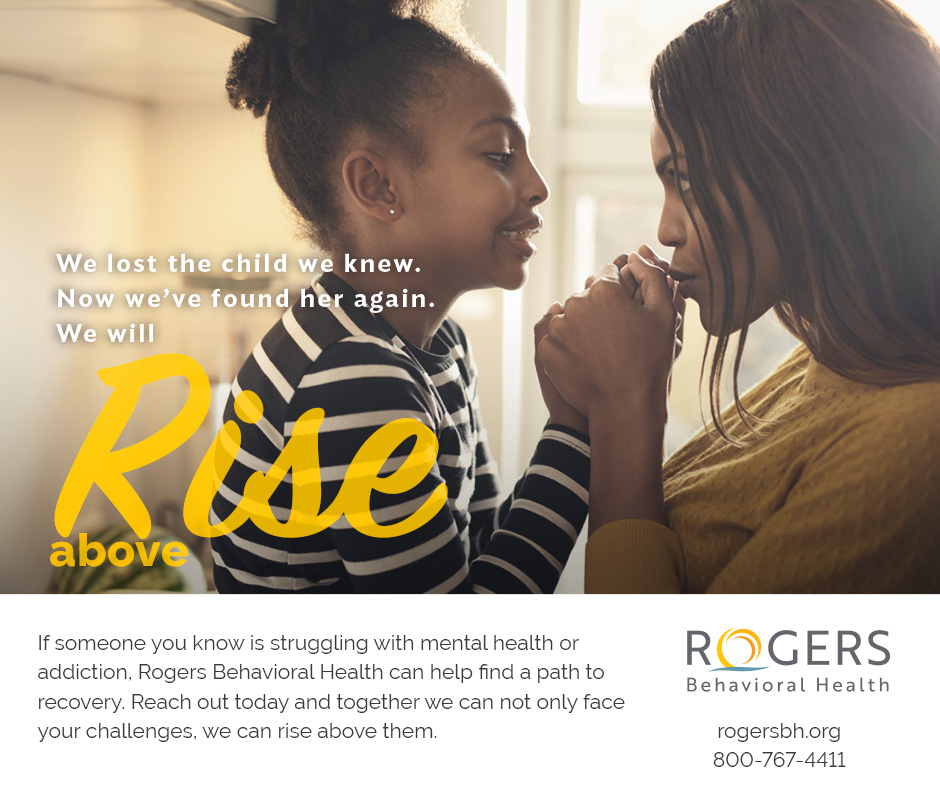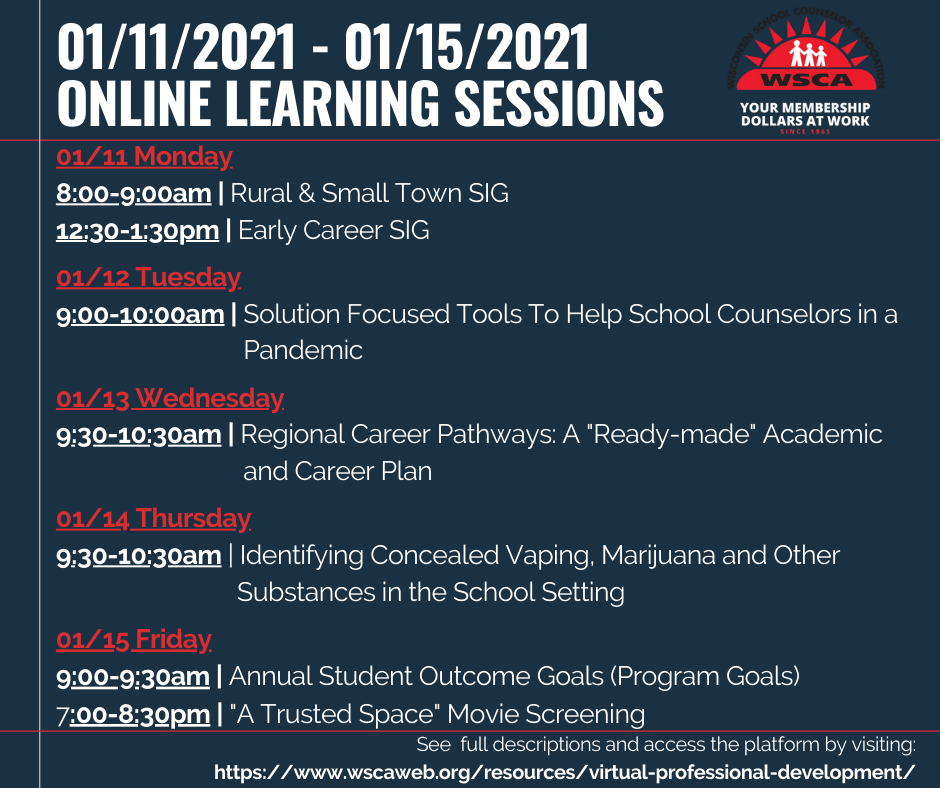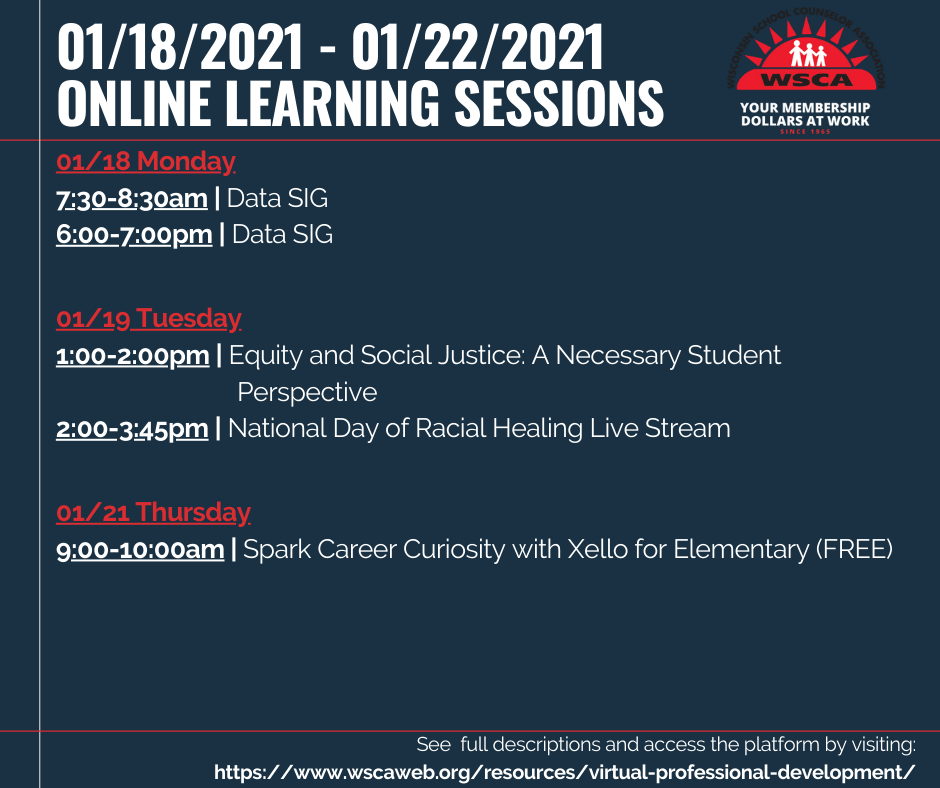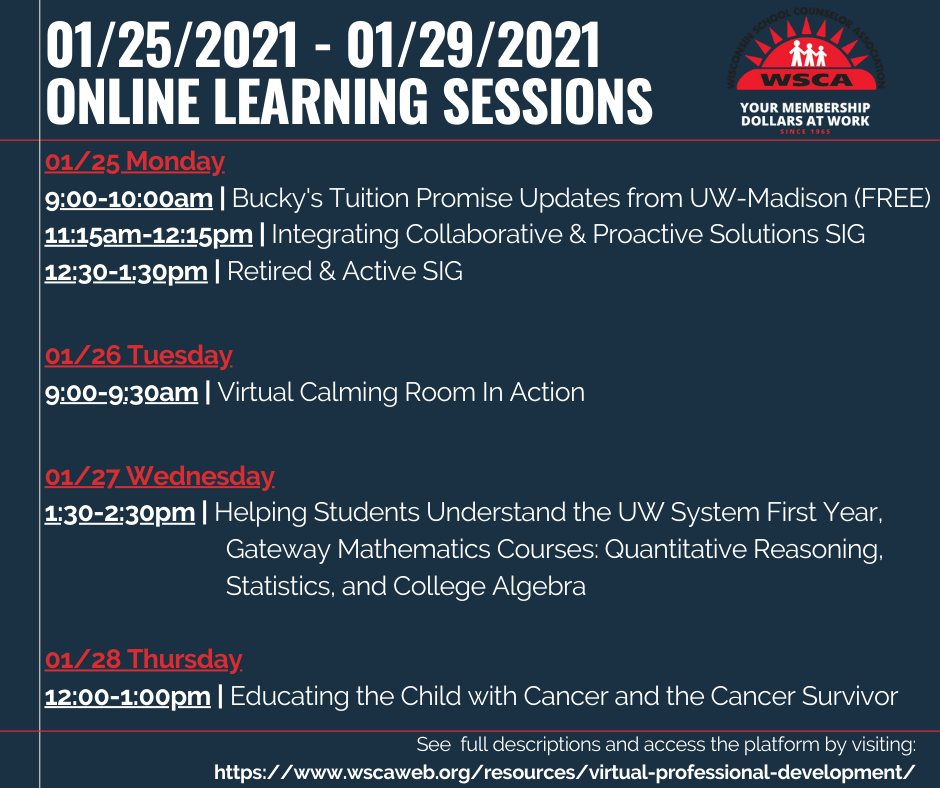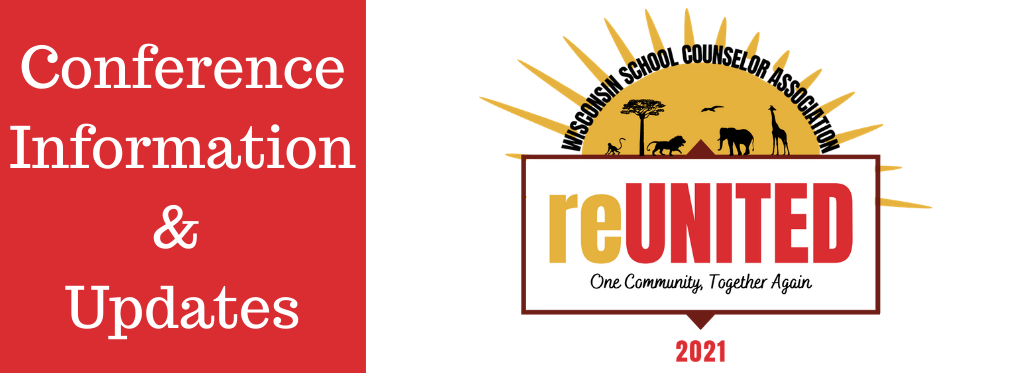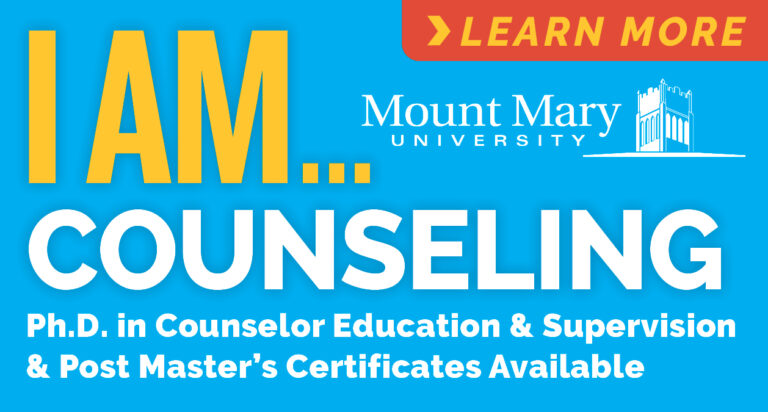
A message from the WSCA Executive Director

Hope for the future
Like many of you, I was eager to put 2020 behind me and was looking forward with hope and anticipation to a 2021 that would begin the start of not only physical healing from the pandemic but the emotional healing needed by a deeply divided society. As I watched in horror at the abhorrent violence at our nation’s Capitol on January 6th it became clear that new beginnings and fresh starts were not on the calendar, at least for early 2021.
As a fixer and a person who desires to take action, it can be overwhelming when thinking about how I can personally impact large-scale system change in a state with an institutionalized culture of oppression and racism against people of color. It is helpful for me to take a step back and consider what is within my focus of control and what steps can I take to advocate for those that do not have the same access and opportunities to share their voice. Interestingly, I often go back to my roots of working in schools and ask: what would I want to talk about or teach my students on these topics?
Considerations we need to keep in mind are what if ALL of our students were taught, practiced, and demonstrated the following Social Emotional Learning Skills outlined by CASEL?
SELF-AWARENESS: The abilities to understand one’s own emotions, thoughts, and values and how they influence behavior across contexts.
SELF-MANAGEMENT: The abilities to manage one’s emotions, thoughts, and behaviors effectively in different situations and to achieve goals and aspirations.
SOCIAL AWARENESS: The abilities to understand the perspectives of and empathize with others, including those from diverse backgrounds, cultures, & contexts.
RELATIONSHIP SKILLS: The abilities to establish and maintain healthy and supportive relationships and to effectively navigate settings with diverse individuals and groups.
RESPONSIBLE DECISION-MAKING: The abilities to make caring and constructive choices about personal behavior and social interactions across diverse situations.
https://casel.org/wp-content/uploads/2020/12/CASEL-SEL-Framework-11.2020.pdf
If our students master these mindsets and skills will our future world of adults be at such odds with each other? Will our future adults have the critical thinking skills and curiosity to learn more about people that are different than them instead of living in fear and/or basing beliefs on stereotypes and talking points?
Children and youth are watching these events along with us and are looking to adults for reassurance and to help make sense of the chaos. We can help our students by:
- Providing opportunities for thoughtful reflection and discussion.
- Allowing students to express their feelings and concerns in productive ways.
- Helping them genuinely understand the history and current realities of racism in this country.
- Encouraging students to be a part of a positive solution by meaningful civic involvement to advance equity.
Counselors, the work you are doing is so critical to building the foundation of our future adults! Even though others may not see it, we do. We see the compassionate, caring, tireless efforts you are putting into serving all of your students. We encourage you to continue engaging in what may be uncomfortable conversations because complicity and complacency have contributed to the current state of our country, and silence is not an option. I have hope that Wisconsin counselors will take on this leadership and advocacy opportunity in your school communities.
WSCA continues to engage in equity work, and you can join us by attending the upcoming National Day of Racial Healing on Tuesday, January 19th as we kick off a series of additional equity learning opportunities. WSCA and CASC have resources and information to support this work available on the covid19k12counseling.org website and on our anti-racism and equity resources page.
~Stacy
A message from the WSCA Board of Directors

Most of us like to think of a new year bringing with it the hope of good things ahead, and wow, 2021, we are all rooting for you. Thankfully, there is genuine reason to be hopeful that the COVID-19 pandemic and many of its accompanying hardships may be at least somewhat curtailed in this new year. As 2021 begins and we head into the second part of the school year, we must hold onto this hope for ourselves and for the students we work with. But what about the pandemic of racism? 2020 also brought multiple traumatic events which brought centuries of racial disparities and tension to the center of our students’ world. There is no vaccine or treatment for systemic racism. Nonetheless, it is our job as school counselors to actively dismantle the barriers of racism that affect our students’ academic, career and personal/social success.
The stakes are high for our BIPOC students but as professional school counselors, we are uniquely equipped to lead in this undertaking. The WSCA Board recognizes the critical importance of ongoing equity focus in our organization. After lengthy, meaningful discussion, we determined that our global ENDS statement should reflect this mission, as it now reads “The Wisconsin School Counselor Association exists so there are conditions enabling Wisconsin School Counselors to practice with the highest level of effectiveness using an equity lens to the extent that justifies available resources.”
This is some of the most challenging, yet most important work of 2021 and beyond. As a new WSCA Board member, I have been energized by the learning opportunities my role on the board has afforded as well the conversations around equity we’ve had as a group. It’s been so rewarding to find that my fellow board members and so many of my colleagues are committed to the huge task ahead. If this past year has taught me anything, it’s that educators and our students can do difficult things. We look forward to supporting you in 2021.
~Carly Roth

Feature Article – Strategies to Implement to Close Gender Behavior Referral Gaps
Strategies to Implement to Close Gender Behavior Referral Gaps
Aria Krieser
Hudson Prairie Elementary, Hudson School District
“Boys will be boys” is a saying we all have grown up with and heard at some point. Seeing our behavior data you would see there is some truth to boys being different than girls, but just dismissing it with that saying would not be equitable or fair for our male youth. The school makeup where the school counselor works is an elementary school in a suburban city with about 515 students enrolled. The district has adopted and implemented Positive Behavior Interventions and Supports (PBIS) at the Tier 1 and Tier 2 levels for the past nine years. Staff looks at data regularly with both PBIS teams and found a gap year to year between our male to female office discipline referrals with our males receiving many more. The average in our SWIS (Student-Wide Information System) was showing 85-90% males receiving ODRs to 10-15% females receiving ODRs as a school-wide total. Looking into this and talking with other schools, we found there was some “normalcy” to having somewhat of a gap in gender referrals, especially at the elementary level, but not this wide of a gap. We knew we needed to do something as a staff to work on addressing this issue. This addresses Mindsets and Behaviors Standards: Self-Management B-SMS 2, B-SMS 10, and Social Skills B-SS3, B-SS9.
The action plan we implemented as a school counseling department approached it from a systems lens. We started with our staff where the counselor facilitated two rounds of a book club using the research-based book, Teaching the Male Brain: How Boys Think, Feel and Learn in School by Abigail Norfleet James. The counselor shared information from the book with all staff at staff meetings throughout the year. The counselor co-facilitated a half-day workshop on male versus female brains to staff who signed up during a professional development day. Through this book and wealth of research about male and female brains and their differences (brain development, brain functioning, brain chemical, even hearing and vision differences) the staff were able to understand some “why’s” about their male students in their class.
The PBIS Tier 1 team had teachers reflect on students, with high regard to male students, who had internalizing or externalizing behaviors that would benefit from a Tier 2 Intervention of Check In Check Out (CICO) or support from a male mentor. The counselor also facilitated self-control small groups, some groups with both genders, some with just males, as well as more Social Academic Intervention Groups (SAIG) with an emphasis on teaching and re-teaching appropriate pro-social behaviors. These groups were based on our SWIS data and teacher referral. With all of this in place, there was a 33% decrease in the number of male students receiving behavioral referrals from the year prior.
This school year there is an additional layer of teaching “code-switching” to all of the students as a Tier 1 practice, and re-teaching the skills to small groups or individuals as data gets desegregated. The counselor taught code-switching to staff at a staff meeting and shared some lesson ideas that were found through the “PBIS Culturally Responsive Field Guide” which is available for download on the www.pbis.org website.
Our building is still working on this gap; it takes time and environmental changes to help ensure males succeed because there are differences in the ways they learn best that we can learn from to help all students succeed academically, socially, and emotionally.
You Spoke, We Listened
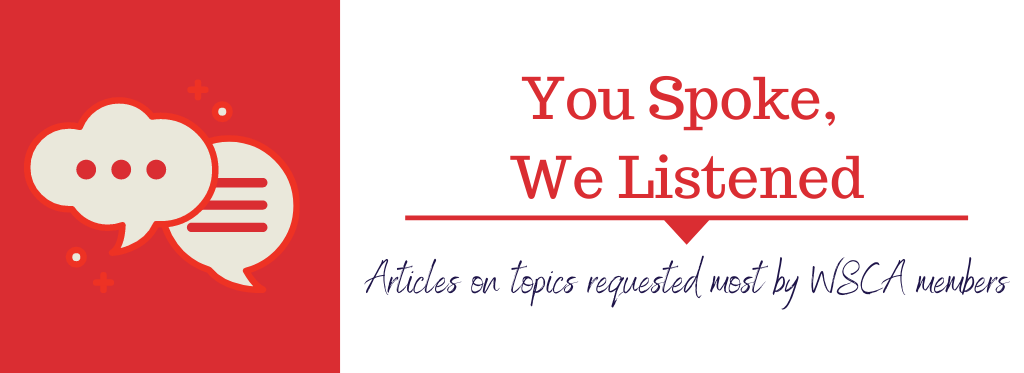
![]()
Gender Focus in School Counseling K12 Career Advising
Lecia Barker, Ph.D. University of Colorado Boulder Associate Professor & Angela Cleveland, MS Ed, M. Ed, MA, NCWIT Counselors for Computing Program Director
Computing occupations are fast-growing and earn high entry-level salaries. Computing professionals work on the cutting edge of science and technology, are influential, work independently and creatively, and enjoy freedom relative to other fields–yet only 26% of them are women. Middle and high school girls are less likely to take elective computing classes, a trend that extends into college. Pre-college boys and girls have similar grades, scores, and course taking, but pursue different career interests because of confidence, belonging, and identity.
Counselors can use active recruitment techniques to encourage girls to take computing classes. The four ingredients of active recruitment are Interest, Confidence, Belonging, and Identity: ICBI.
Build interest in computing! Interest in an activity is influenced by one’s beliefs that they can be successful and that the outcome will be worth their time and energy. It’s important to connect to things that girls already care about and to show them that they can be successful. Describe computing as socially relevant, as solving many problems in the world, and as expressing creativity. Show interesting projects students have done in the class, like designing apps or creating artistic wearables. Computing professionals are highly collaborative and work in any industry.
“Scratch lets me show others that coding is important. Coding is your superpower and you can accomplish anything you put your mind to.” – Abby, age 7.
Build girls’ confidence! Girls often tacitly believe social stereotypes that women aren’t technical and that men are, which chips away at their confidence. As a result, they need explicit assurance that they will do well in computing classes. Celebrate the knowledge they already have to get started.
“School counselors play a critical role in students’ career development by … addressing both intentional and unintentional biases related to college and career counseling” – ASCA The School Counselor & Career Development
Build a sense of belonging! Ask girls if there is a friend or group that might take a class with her–like the girls’ softball team–to support a sense of community in the classroom. Suggest that teachers broaden appeal by showcasing posters of women leaders in computing and pictures of former female students. Teachers are vigilant about classroom conversations, the assignments they use, and shutting down any boys who make girls feel they don’t belong.
“I was discussing career options with my school counselor. She saw that I had been taking a lot of classes that utilized problem-solving skills, so she suggested I look into computer science (CS) as a career option. When I learned how CS could be a great creative outlet for me, I decided to pursue it in college.” – Calvin University Student Nikita S.
Build Identity! Hang posters on your walls or hallways showing interesting and valued contributions of women and minority computer scientists. Encourage girls to watch videos of successful computer scientists (who happen to be women). If girls express concern about there being only a few girls in the class, share diverse examples of examples of women’s progress in STEM: If/Then Collection, CSEdWeek.
![]()
Strides Being Made to Help People from Every Background
Rogers Behavioral Health
While mental health disorders do not discriminate, there is increasing recognition that mental health disorders do affect various populations differently.
Here are just a few examples from the American Psychiatric Association:
- Although rates of depression are lower in African Americans (24.6%) and Hispanics (19.6%) than in white adults (34.7%), depression in African Americans and Hispanics is likely to be more persistent.
- LGBTQ individuals are more than twice as likely as heterosexual men and women to have a mental health disorder in their lifetime.
- White Americans are more likely to die by suicide than people of other ethnic and racial groups.
- Compared with men, women are twice as likely to experience posttraumatic stress disorder (PTSD).
Dr. Chad Wetterneck, PhD, licensed clinical psychologist and clinical director for Trauma Recovery services at Rogers Behavioral Health, shares some strides that have been made by mental health providers when it comes to providing compassionate and personalized care to all populations.
Each person has a unique story
In the helping professions, we are taught to recognize that the patient’s perspective and life experiences are most important, and we as clinicians receive training on how to understand and empathize with what others have gone through.
Understand the impact of prejudice, discrimination, sexism, sexual orientation, and religion
Women are commonly treated differently. For example, they can experience expected gender roles, objectification, lower pay for similar work, etc. Older adults may experience lower hire rates, or stigma related to ‘speed of work’. People with particular sexual orientations are often called disparaging terms, threatened or attacked because of their orientation. In addition, experience with racism has been linked to mental health disorders like PTSD or depression, and physical health conditions caused by stress.
Recognize how trusting authority can affect treatment
We hear from our patients, ‘how can you know my pain if you haven’t been depressed, had suicidal thoughts, gone through trauma, obsessions, substance use, or disordered eating?’ We have to validate these concerns and recognize—whether the patient brings it up or not—that they may be concerned about our ability to relate to mental health challenges, and living in society as an African American, transgender, female, devoutly religious, or disabled person.
Break down barriers to receiving mental health care
As mental health providers, we naturally want to help as many people as possible, but we realize that there are still barriers to some populations receiving treatment including cultural norms. Some may view help for mental illness as taboo; there’s mistrust of authority; lack of transportation to hospitals; and lack of diversity in staff with whom populations may identify with.
What is Rogers doing to make it easier for all populations to receive specialized mental health treatment?
Respecting and supporting each individual’s background and needs is paramount for Rogers Behavioral Health.
Dr. Wetterneck notes Rogers has worked with experts in cultural diversity. “We use a state-of-the-art clinical interview to assess racial stress and trauma to help recognize the damaging effects of racism, prejudice, and discrimination. We validate reports of discrimination and distress to support our patients. We show our patients that we want to know how their upbringing and identity have influenced them for better or worse and understand that one treatment approach may not be right for all.”
As part of Rogers’ admissions process, we ask our patients what gender they identify with, what gender they were assigned at birth, what their preferred name is, and what pronouns they prefer. This allows us to address them appropriately in person and in our documentation.
Rogers can help
If you or someone you love is struggling with mental health, Rogers offers compassionate, evidence-based treatment for children, adolescents, and adults across the country. Call 800-767-4411 or request a free, confidential screening online.
![]()
Close to Home
Sara Mackey, Wisconsin Technical Colleges
The year 2020 has been unlike any in our lifetimes. It’s safe to say the challenges of this year, between the pandemic, social unrest, economic distress and political uncertainty created some chaos and forced us to challenge some assumptions along the way. An example is the concept of college students staying close to home. For some students, attending a college close to home may never have been a consideration. But as many colleges moved entirely online to protect students and staff, even closing residence halls, proximity to home became a tremendous advantage for many students.
As new generations of young people ascend into adulthood, many cultural and other factors occurring in their formative years influence their values and interests. The phenomenon of this collective experience shapes their outlook in a way that defines them differently from previous generations. In this regard, ‘Gen Z’ seems less interested in leaving the nest compared to some of their predecessors. This is especially true if staying at home can save them money, as they are also seemingly more frugal than some previous generations. Throw a pandemic into the mix, and suddenly, even students drawn to migrate to a far-off college for the experience might reconsider. In many ways, amidst the chaos, the technical colleges continue to be the most forgiving and adaptable option for those who choose it.
For example, changing conditions at colleges sent many students back home at various times, unexpectedly, for at least part of the year. Many students who chose a technical college either because or despite it being close to home, had much less disruption than students in a dorm or on-campus housing especially those far from home. For those four-year students, moving home created some logistical challenges, possibly some anxiety, and a significantly- altered experience.
Elizabeth Theilman told WJFW News in Rhinelander that she planned to move to Madison to attend the Veterinary Technician program at Madison College. When the time came to rent, she decided to stay at home and take the same Madison College classes, but online from Rhinelander. “I didn’t want to pay for an apartment down there if I was just going to be doing online [classes], so that’s why I stayed here.”
Meanwhile, Samantha Zarm, prioritized her health in her decision to stay home and take online classes from Nicolet College in Rhinelander. She said, “If it weren’t for the Coronavirus, I would’ve probably gone to a different college, but I would rather stay at home and not risk getting COVID.”
Many students were already planning on attending college closer to home. Khael Pacheco planned on attending Madison College since his Junior year in high school because of the low cost and how close the campus is to his house. “My goal is to become a nurse after college. COVID-19 has caused classes to be completely online, which was more of a struggle than I originally imagined, but it was a great learning experience.”

Haley Van Raden from Mayville is attending Moraine Park Technical College. She says she always attended small schools when she was growing up. Even her high school graduating class topped out at 102 students. Because of this, her priorities in selecting a college included “close to home, small class sizes and affordable.”
In most “normal” years, students choosing to attend a technical college typically attend the college close to home or in a nearby community, unless their program of choice isn’t offered locally. Compare that to many four-year students, who not only tend to move out of their home, they sometimes move far from home as part of the experience. The unexpected campus closures this year placed an added burden on families of limited means. Some had space and resources (internet access, computers, etc.) for their student to continue classes from home, but others may have had to find other housing, potentially adding expense they may not have factored into their budget.
We don’t know yet how this year might influence future decisions of students, or their expectations, but it will certainly be a factor. And given the curve balls this year has thrown at students, their perspectives might just have changed enough to value “close to home” more than they would have without the pandemic.
Each student’s selection of a college, just like any major life decision, should be based on their unique needs and preferences. Also, that plans can and should pivot with their needs. We hope all student advocates – parents, counselors, and other influencers – give students the space to plan according to what works for them individually and realize that college is no more of a “one size fits all” scenario than it ever was. We also want all students to know that if and when they’re ready to attend a technical college, either in person or virtually, we’re ready for them.
Legislative Updates: School Counselor COVID Advocacy Tips & WSCA Position Statement
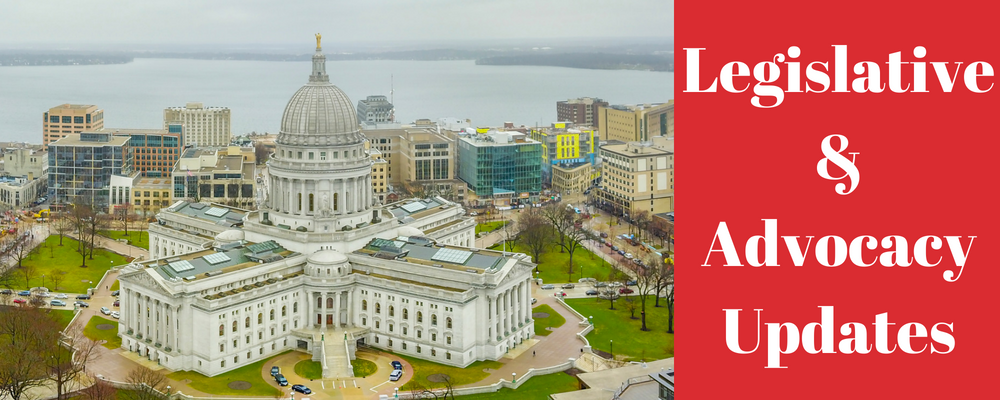
School Counselor COVID Advocacy Tips
A November 2020 WSCA school counselor survey showed that 2/3rds of school counselors have had a change in their roles and now spend a greater percentage of their time on non counseling duties. WSCA has created a position statement that can be used by counselors to start conversations about your role in your school community. We hope these tips and questions will also help you in those meetings with supervisors and administrators.
Reflection Questions
- What are you unable to get done in your contracted time if you’re doing other duties?
- Do a time study to show how you are currently spending your time. If you have done this previously you could compare the two to see how similar/different they are.
- Have ideas to shift that time and how/why you think it will have a greater impact for students.
- What is your admin team’s plan if you are unavailable in an emergency situation?
- What are your building and district goals this year?
- Have you met with your supervisor or administrator to discuss things you can do to help meet those goals?
- What does your administrator know about the role of the school counselor?
- Give them a copy of ASCA’s school counselor roles and responsibilities
- Set up a weekly or bi-weekly meeting time with student services staff to talk about your school’s climate and issues you may be facing – be part of the problem solving team.
Non-School-Counseling Duties
Non-school-counseling duties take away valuable time from implementing a school counseling program that meets students’ needs. Consider these steps for the reassignment of non-school-counseling duties.
- Identify tasks school counselors are currently responsible for that do not align with the appropriate duties of a school counselor.
- Use data from the use-of-time calculator or estimate the amount of time in hours these duties take away from school counseling program implementation.
- Consider if the tasks really need to be completed and how else the tasks might be completed, including through technology usage for increased efficiency.
- Determine what school counseling activities would replace these tasks if they were removed, and estimate the impact on students.
- Express willingness to be part of a plan for successful transfer of the tasks to staff who have skills to complete the task, keeping in mind that other staff members may already have a large list of responsibilities as well.
- Recognize that reassigning tasks may take time.
In an effort to provide our members with the most support during these trying times, WSCA has crafted a position statement regarding School Counseling Duties During COVID 19. Click below to download the document.
Upcoming Events & Committee Updates: NSCW Breakfast




